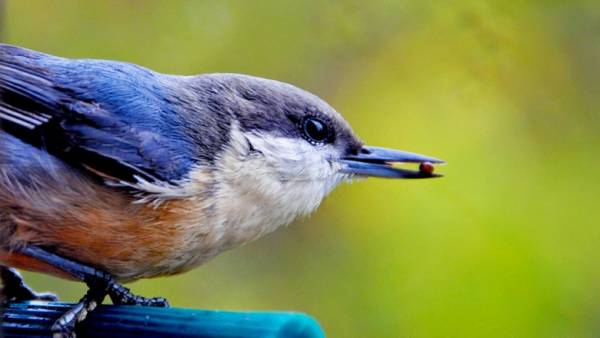Paleontologists again explained the toothless birds. This time of accelerated development of embryos
The disappearance of teeth in birds has helped to reduce the time of hatching from eggs, assumed paleontologists in an article published in Biology Letters. Development of teeth in embryos of dinosaurs significantly slowed their development, and the incubation time of the eggs increased — perhaps the loss of teeth became an evolutionary advantage of birds and influenced the acceleration of embryo development.

The fossil of a toothless bird-like dinosaurs and birds of the Mesozoic era suggests that archosaurs (the group including include dinosaurs, crocodiles and birds) several times lost teeth and again acquire them. According to researchers birds thus become easier and acquired ability for active flight; according to another hypothesis tooth loss and beak development was interrelated.
Last year an article was published in which the researchers studied embryos birdlike dinosaurs found in fossil shells and their development was evaluated by the approximate incubation time of eggs in different species of reptiles. Paleontologists have discovered that the incubation time of eggs of dinosaurs ranged from three to six months, as many modern reptiles. Scientists also noticed that the teeth in embryos appeared quite late when held about 40 percent of the time of incubation. Therefore, they suggested that the limiting factor in the development of the embryo could be the rate of formation of dentin.
Paleontologists zu-Rui Yang (Tzu-Ruei Yang) and Martin Sander (Martin Sander) based on these data suggested a new article that birds could lose teeth to speed up the development of embryos and reduce the incubation time of the eggs. The long incubation time of eggs increases the likelihood that before the masonry gets predators or parasites, so reducing the time of development of embryos evolutionary advantageous. Modern birds hatch masonry from 11 days to two months continuously and up to three months intermittently.
At the same time, the researchers note that the hypothesis does not work for turtles, which have no teeth, and the time of incubation of the masonry can reach four months. Also, some sharp-toothed dinosaurs, like T. Rex, apparently, hatched out their clutch.
Earlier paleontologists explained how large weight birdlike dinosaurs hatched eggs and managed not to crush. They made a big nest and had eggs on its perimeter, so that the lizard could sit down and warm laying by the sides or limbs.
Ekaterina Rusakova